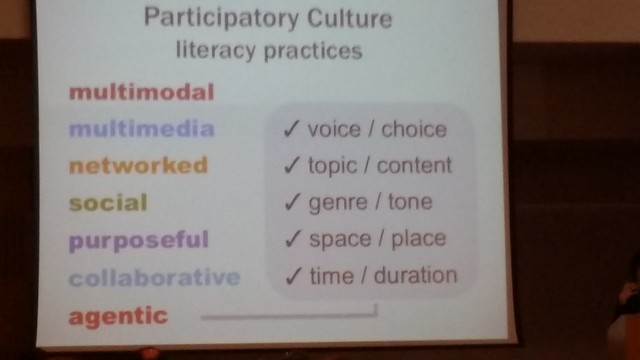This panel from Vivien Rolfe, David Kernohan, Lorna Campbell, Pat Lockley, Simon Thompson and Leo Havemann explored in different ways how OERs can be sustained.
The panel kicked off with a video from Pat Lockley @patlockley, in character as Alex from Clockwork Orange moving on to the decline of OER production, access and use as funding declined, and institutions.
The Plight of OER from Pgogy on Vimeo.
Vivien Rolfe @vivienrolfe spoke from a more personal perspective of OERs she had been involved with that were being sustained by the work of individuals rather than institutional buy-in. #oer16sustain
Questions surfaced issues of sustainability and how it might happen and be supported.
Simon Thompson discussed alternatives to official but ephemeral repositories. First he talked about Merlot.org that appears to be sustainable if not fully open and then suggested that Amazon Education could become an attractive alternative for under-funded institutions. This provoked lively discussion.
Leo Havemann shared research he did with Javiera Atenas comparing 80 different repositories across 10 quality indicators to see how repositories work? Results were disappointing in terms of scoring on indicators (9 indicators under 50%). Discussion ranged around why this might be, and surprise at low use of licensing.
Lorna Campbell explained how the spike in OER shown in Pat’s video related to England, from UKOER funding that wasn’t active in Scotland but that practices and (people) expertise did migrate between England and Scotland that can be seen as a form of sustainability. Lorna speculated that repository activity might increase as it declines across the rest of the UK.
Discussion ranged around funding models and their relationship to sustainability.

![LARGE MURAL BY JOE CASLIN [SAME-SEX MARRIAGE] REF-103588](https://live.staticflickr.com/7694/17177200132_e0f7cc8473_z.jpg)

